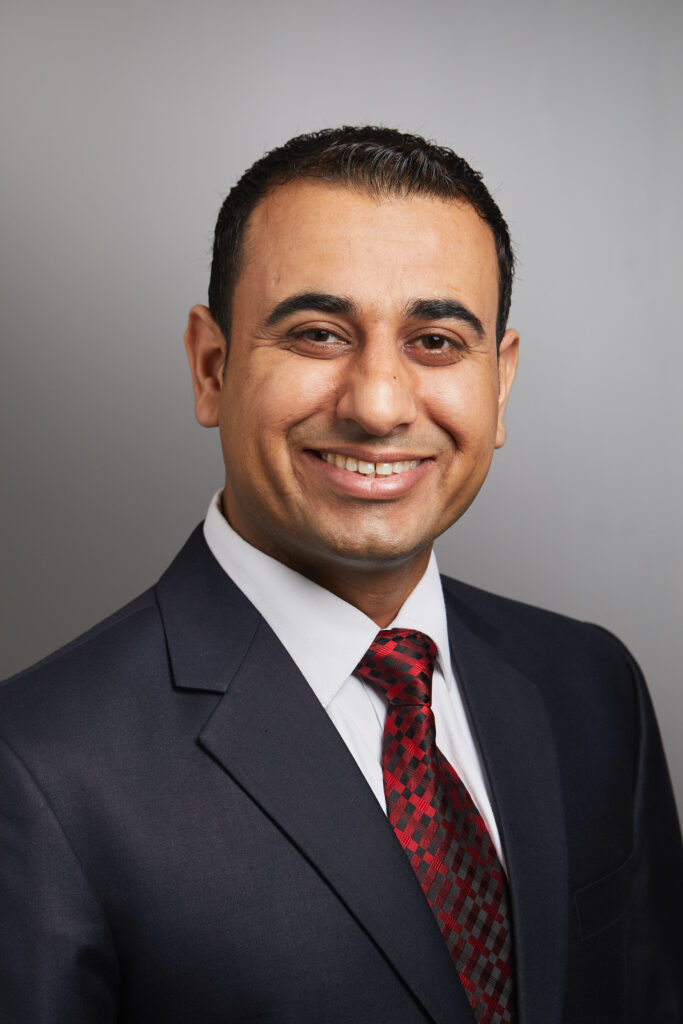*EMBARGOED All research presented at the 2023 ACG Annual Scientific Meeting and Postgraduate Course is strictly embargoed until Sunday, October 22, 2023, at 3:00 pm PT.

P3711 – Efficacy and Safety of Gastric Peroral Endoscopic Myotomy for Refractory Gastroparesis
Tuesday, October 24, 2023 | 10:30 AM – 4:00 PM PT | Location: Exhibit Hall
Author Insight from Muhammad Nadeem Yousaf, MD & Ghassan M. Hammoud, MD, University of Missouri-Columbia, Columbia, MO
What’s new here and important for clinicians?
This study highlights that Gastric Peroral Endoscopic Myotomy (G-POEM) is emerging as a promising therapeutic option for patients suffering from refractory gastroparesis, that has been challenging to manage effectively with traditional, dietary, lifestyle and medical therapy. Our study highlights the high clinical success rate 88%, indicating substantial improvement in gastroparesis symptoms. This outcome is a crucial finding for clinicians, as it suggests that G-POEM can lead to significant symptom relief for a substantial portion of refractory gastroparesis patients. G-POEM was found to be technically successful in all cases (100%), emphasizing its feasibility and safety. Importantly, the study reports a low rate of mild peri-procedural adverse events (8%), no major adverse events and short hospital stay, indicating G-POEM is minimally invasive and allows for rapid recovery. Following G-POEM, there was a significant reduction in emergency room visits related to gastroparesis-related symptoms. Clinicians can consider this when discussing treatment options with patients, as it may lead to improved patient satisfaction and reduced healthcare costs. The study highlights the need for further research to identify predictive factors for the long-term success or failure of G-POEM.
What do patients need to know?
Patients with refractory gastroparesis should be aware that there is a new and potentially effective treatment option called Gastric Peroral Endoscopic Myotomy (G-POEM). This procedure has shown promising results in improving symptoms and may offer relief when other treatments have failed or patients are intolerant to medical therapy due to its side effects. This study reports that G-POEM has an 88% clinical success rate, meaning that a significant number of patients experienced substantial relief from their gastroparesis symptoms when combining with dietary and lifestyle modifications. The technical success rate of this procedure is 100%, but patients also need to know that individual outcomes may vary. G-POEM has been found to be a safe procedure, with minimal adverse events. Patients considering G-POEM should discuss the potential risks and benefits with their healthcare provider, but this information suggests that the procedure carries a relatively low risk. After G-POEM, patients typically require a short hospital stay for getting their gastric emptying study next day for evaluation of gastric leak and tolerance to oral diet before discharge. This means that they can expect a quick recovery compared to more invasive surgical options. After undergoing G-POEM, patients experienced fewer emergency room visits related to gastroparesis symptoms. This indicates that the procedure has the potential to provide long-lasting relief and improve their quality of life. Patients should be aware that further research is needed to identify factors that predict long-term success with G-POEM. This means that not all patients may experience the same level of benefit.
Before considering G-POEM, patients should have a thorough discussion with their healthcare provider. They should discuss their specific condition, treatment goals, potential risks, and expected outcomes to make an informed decision about whether G-POEM is the right option for them.
Author Contacts
Muhammad Nadeem Yousaf, MD & Ghassan Hammoud, MD, University of Missouri-Columbia, Columbia, MO
muhammad.n.yousaf [at] health.missouri.edu
Media Interview Requests
To arrange an interview with any ACG experts or abstract authors, please contact Becky Abel of ACG via email at mediaonly [at] gi.org or by phone at 301-263-9000.

